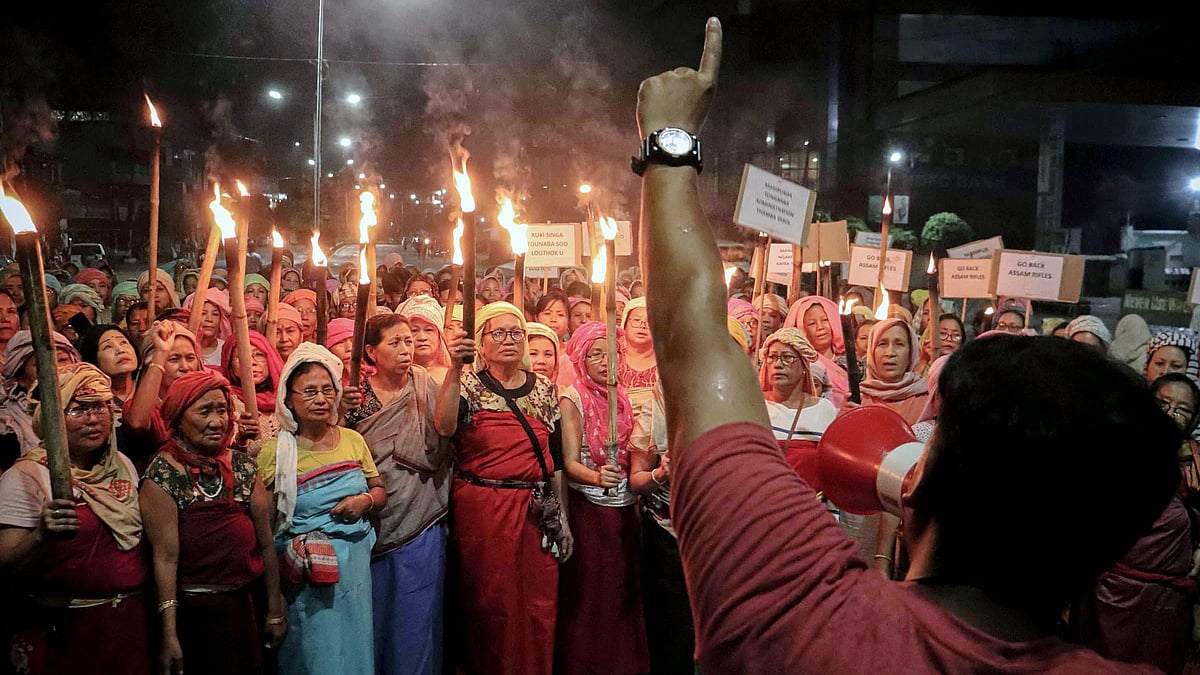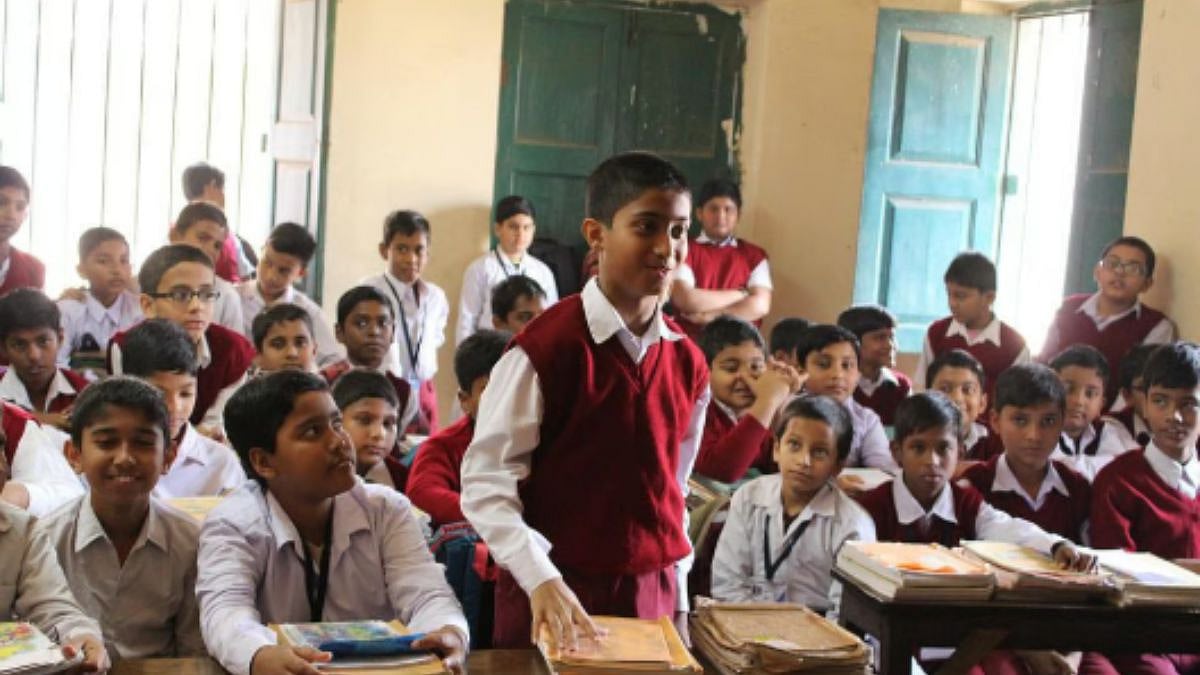A few days ago, those at the helm of Manipur’s security took the unprecedented step of calling out a piece of fake news in circulation that some 900 militants from neighbouring Myanmar had entered the state.
Till then the tiny valley nestled between dense jungles and low hills had remained tense with villagers arming themselves to the teeth for another round of skirmishes between the majority Meitei community that dominates the valley and Kuki-Zo tribals who live in the highland districts nearby.
Many, including the highest political executives of the state, seemed to believe the strange tale to be credible intelligence, despite the fact that the movement of such a large body of men and material should have left enough telltale signs across the border. At the very least a fleet of 100 off-roader vehicles would have been required to transport this small army and that was simply not available in the state or in neighbouring areas of strife-torn Myanmar.
However, that is the way of the world, especially in conflict-ridden areas. Rumours become self-evident truths and truths are often termed as rumours, including moves by the central government to reach a peace accord. Moves which may have gained some traction in the “hush hush talks” being held in various venues, according to some politicians who have been involved in the preliminary talks.
Since the civil war between the two communities broke out in May last year, some 217 people, at least half of whom were unarmed civilians, have died as each side reacted to real and imagined slights and attacks from the “enemy”.
A surge in conflict was noticeable this autumn with not only a sudden rise in the number of attacks and fatalities, but also a new dimension added to the conflict — use of drones to attack rivals.
The spat seems to have worsened as both sides sensed that in any new arrangement which the central government undertakes to bring about, a working peace between them will see ethnic borders being drawn up and both Meitei and Kuki-Zo militants trying to grab as much territory in mixed or buffer areas as possible so that the new maps favour them.
Drones, possibly assembled locally from Chinese manufactured components, have been in use in neighbouring Myanmar where rebel outfits have been fighting a successful guerrilla war against regular troops.
It was a no-brainier that this technology would soon permeate across the difficult-to-police border and present a new headache for those tasked to bring peace to the “Land of the Jewel”.
The weapons in use in the ongoing Manipur conflict range from AK 47s to rockets and are an odd assortment of sophisticated and not-so-sophisticated arms from India, Myanmar, China, US, Russia and even Europe.
Nevertheless the numbers — both of men and munitions — are not so insurmountable as to be contained and tempers calmed down.
That the state government has not been able to squelch this “little war” and bring peace to the tiny state speaks volumes of its capabilities, or that of its police force which has been often accused of parochial biases which hampers its effectiveness, especially outside the Imphal valley.
The Meitei-dominated elected state government and police have in the last two years been unable to either build trust among the minority tribals or for that matter maintain balance between aggressive majoritarian demands made by the Meitei community and the need to broker an equitable solution which satisfies rival parties.
To make matters worse there is dissent within the state government’s political executive which has the potential of making various factions among MLAs taking more hardline stances on the conflict, making it more difficult to reach a “peace pact” with the tribal communities.
As it is the Manipur government has been reiterating its stand that the current peace agreement with surrendered Kuki militant bodies be ended; a move which is sure to escalate the conflict as scores of hardened militants who are now living in camps under the watchful eyes of the Army would be set loose to do as they please.
The need of the hour is for the central government to take the initiative, and if need be either sideline the state government by asking it to maintain silence over the conflict or to declare President’s rule in the troubled state.
It is high time that all concerned realise that the loss of a government is a smaller loss than continued chaos in a vital border state. The Zo or Zomi family of tribes includes Kuki, Paite, Hmar etc, of Manipur, the Mizos of Lushai hills, some tribes in Meghalaya and tribes in Kachin and Chin provinces of Myanmar.
The Kachin and Chin rebels of Myanmar have gained considerable success in their battles against the military junta ruling the Southeast Asian nation. The region has large and small caches of arms and surplus manpower left behind by various groups, which could easily be channelled to start or prolong insurgency anywhere nearby.
At the same time, it has to be realised that with a regime change in Bangladesh, it is very possible that Northeastern rebel groups could well find a safe sanctuary and even training camps across the border in places like Chittagong Hill Tracts and in the tea gardens of Srimangal and Sylhet, which have earlier too been used for similar purposes.
It is time India got its act together in the Northeast and doused the many local fires to present a united front in the region, to ensure that it cannot be exploited by any outside forces.
Perhaps Raisina Hill should avoid its mainland obsession and exercise a combination of both political sagacity and tactful diplomacy in India’s Northeastern corner so that peace can once again prevail there.
The writer is former head of PTI’s eastern region network











